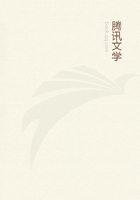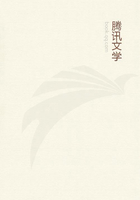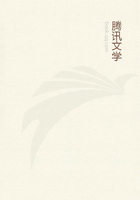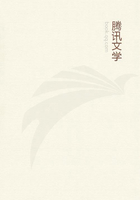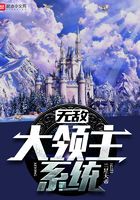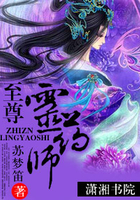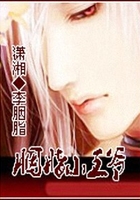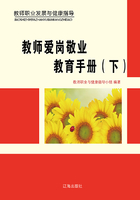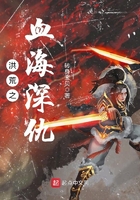The writer of this romance has been encouraged to his task by a purpose somewhat beyond that of setting out a wild tale of savage life. When he was yet a lad,--now some seventeen years ago,--fortune took him to South Africa. There he was thrown in with men who, for thirty or forty years, had been intimately acquainted with the Zulu people, with their history, their heroes, and their customs. From these he heard many tales and traditions, some of which, perhaps, are rarely told nowadays, and in time to come may cease to be told altogether. Then the Zulus were still a nation; now that nation has been destroyed, and the chief aim of its white rulers is to root out the warlike spirit for which it was remarkable, and to replace it by a spirit of peaceful progress. The Zulu military organisation, perhaps the most wonderful that the world has seen, is already a thing of the past; it perished at Ulundi. It was Chaka who invented that organisation, building it up from the smallest beginnings. When he appeared at the commencement of this century, it was as the ruler of a single small tribe; when he fell, in the year 1828, beneath the assegais of his brothers, Umhlangana and Dingaan, and of his servant, Mopo or Umbopo, as he is called also, all south-eastern Africa was at his feet, and in his march to power he had slaughtered more than a million human beings. An attempt has been made in these pages to set out the true character of this colossal genius and most evil man,--a Napoleon and a Tiberiius in one,--and also that of his brother and successor, Dingaan, so no more need be said of them here. The author's aim, moreover, has been to convey, in a narrative form, some idea of the remarkable spirit which animated these kings and their subjects, and to make accessible, in a popular shape, incidents of history which are now, for the most part, only to be found in a few scarce works of reference, rarely consulted, except by students. It will be obvious that such a task has presented difficulties, since he who undertakes it must for a time forget his civilisation, and think with the mind and speak with the voice of a Zulu of the old regime. All the horrors perpetrated by the Zulu tyrants cannot be published in this polite age of melanite and torpedoes; their details have, therefore, been suppressed. Still much remains, and those who think it wrong that massacre and fighting should be written of,--except by special correspondents,--or that the sufferings of mankind beneath one of the world's most cruel tyrannies should form the groundwork of romance, may be invited to leave this book unread. Most, indeed nearly all, of the historical incidents here recorded are substantially true. Thus, it is said that Chaka did actually kill his mother, Unandi, for the reason given, and destroy an entire tribe in the Tatiyana cleft, and that he prophesied of the coming of the white man after receiving his death wounds. Of the incident of the Missionary and the furnace of logs, it is impossible to speak so certainly. It came to the writer from the lips of an old traveller in "the Zulu"; but he cannot discover any confirmation of it. Still, these kings undoubtedly put their soldiers to many tests of equal severity. Umbopo, or Mopo, as he is named in this tale, actually lived. After he had stabbed Chaka, he rose to great eminence. Then he disappears from the scene, but it is not accurately known whether he also went "the way of the assegai," or perhaps, as is here suggested, came to live near Stanger under the name of Zweete. The fate of the two lovers at the mouth of the cave is a true Zulu tale, which has been considerably varied to suit the purposes of this romance. The late Mr. Leslie, who died in 1874, tells it in his book "Among the Zulus and Amatongas." "I heard a story the other day," he says, "which, if the power of writing fiction were possessed by me, I might have worked up into a first-class sensational novel." It is the story that has been woven into the plot of this book. To him also the writer is indebted for the artifice by which Umslopogaas obtained admission to the Swazi stronghold; it was told to Mr. Leslie by the Zulu who performed the feat and thereby won a wife.
同类推荐
热门推荐
胭脂小王爷
长安城内,谁人不知逍遥王爷之子花渐离是个不学无术、贪财好男色的败家子,人送外号“草包少爷”。一席红衣,长发垂腰,肤色白如凝脂,额间系着一枚墨绿色暖玉,双目犹如一泓清泉,奕奕生辉......举手投足间,无不让人为之消魂!可谁又知她是为母不得已着了男装,即便如此,她依然弄得天下大乱。来自几百年后的她在江湖上翻手为云、覆手为雨!试问,世间之人谁能敌过!推荐新文:《僵尸借贷》《少爷别这样》您觉得好看就收,顺便赏烟稚张票子,这可是动力!要是您觉得不好看,也行!下面的留言区就是您发泄的地方,使劲的抨击我这颗脆弱的小心脏吧。但是谢绝人身攻击````男女主角简介:姓名:花渐离原名:小五陌杀称:小离离性别:女外貌:哪个女子见她都想嫁性格:无赖、残忍兼二皮脸爱好:金子、银子、毒药、春.药绝技:骗人、金刀杀人身份:全朝闻名的胭脂小王爷姓名:陌杀渐离称:人妖大哥性别:男外貌:哪个男子看见他都想娶性格:单纯、娘娘腔兼打不死的小强爱好:满足小离离一切无理与合理的要求绝技:撒娇、银针杀人身份:妖娆得雌雄难辩的毒刹门门主(片段一)皇上咳了一下正声道:“好了,那我们就继续吧。朕先出个简单对子,看看谁家的公子能对得工整。听好了,朕的上联是‘洛阳亲友如见’,谁来对下句?”渐离马上举手说:“我来我来!”皇上点点头,说:“那就你来对吧。”渐离高兴的说:“就说我在岳阳楼!”皇上的笑意更深了:“倒还说的通,那朕再出一个,‘西塞山前白鹭飞’。”“东村河边黑龟爬!”亭子里面的人笑得是前俯后仰,气得花惊风想直接拍死渐离。“哈哈,倒也工整,那就再来一个,‘竹外桃花三两枝’。”“一只猪来把它吃。”“蚍蜉撼大树”“一动也不动......”就连皇上也忍不住了,扶着胸口大笑起来:“王爷之子果然才思敏捷,真是叫朕刮目相看啊!”(片段二)渐离气急败坏:“看什么看,没见过找儿子的啊,哪凉快哪待着去!”路人一哄而散。路人甲大着胆子走了过来:“请问这位公子,你的儿子长什么样,我可以帮你找找。”“他长得像女人。”渐离利落的回答。“啊?这样啊,那他多高?”路人甲有些被雷到了。“比我还要高一个头左右。”恩,她曾经目测过。仿佛被雷劈到脑门的路人甲说:“请问令公子今年多大了?”“恩......大概比我大三四岁吧”渐离低着头瞑思苦想,最后敲定了答案。教师爱岗敬业教育手册(下)
教师的职业是“传道、授业、解惑”,教师的职责是把教学当成自己的终生事业,用“爱”塔起教育的基石,用自己的学识及人格魅力,点燃学生的兴趣,促进学生的健康、快乐成长。

